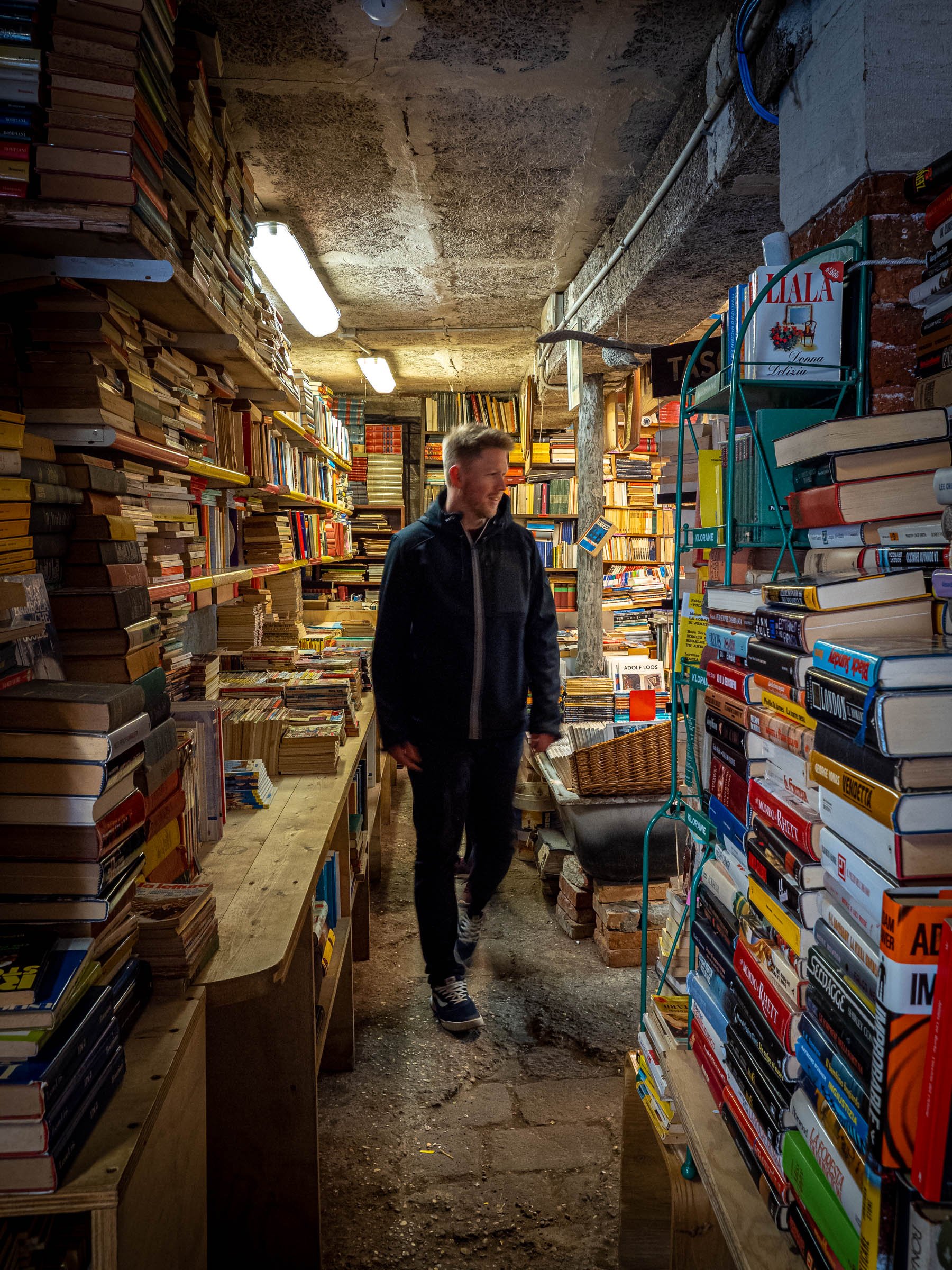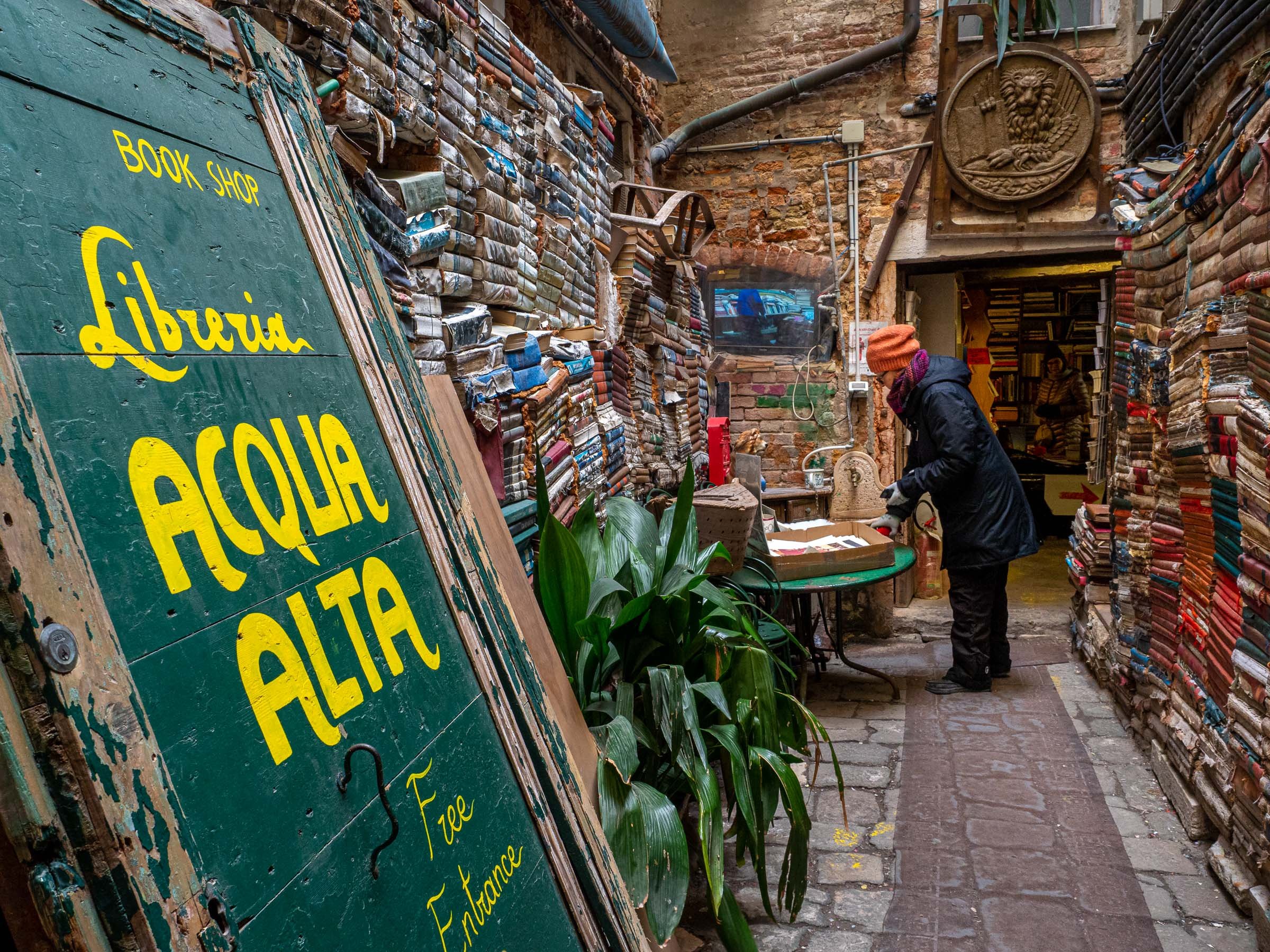Venice became the most powerful and wealthy maritime state in the Mediterranean through naval trade. Their strategic location allowed them to be pivotal middlemen in the trade between Europe and the Middle East. Their immense wealth and power is still evident in the unbelievably rich and sumptuous buildings that still survive. Trade is still central to the Venetian economy, but it’s shifted to servicing the hordes of tourists who flock to this ancient and beautiful city. The majority of the traders likely don’t have a long and intimate relationship with Venice, but if you look around, it’s not too hard to find a few long-established businesses, many of whom focus on serving the locals rather than the tourists.
The Rialto fish market has been around for hundreds of years, as evidenced by the stone plaque listing minimum sizes of fish which can be sold. There’s no real indication of how long any of the individual traders have been around, but I can imagine it’s the sort of thing that gets handed down through the generations. My recollection from my last visit seven years ago is that it was much busier, whth more trades then, so whether it lasts a few more hundred years remains to be seen.
Luigi opened his bookshop Libreria Acqua Alta 20 years ago. I wrote about it on my last trip seven years ago, and when I was there Luigi was working the till, wearing his funky measuring tape braces. The shop is busier than ever these days, and while Luigi no longer mans the till, he still has a role to play, sitting in the back courtyard with a cigarette directing traffic up and down the crazy book staircase. He trusts one of the resident cats to keep an eye in the financial transactions, and he’s still wearing those braces.
Sonia opened her grocery shop Drogheria Masceri near the Rialto bridge with her husband more than 50 years ago. Sonia is still a presence, but the store is run by her two sons these days. While she still wears her spotless white dust coat, her main role these days appears to be chatting with customers and old friend, which are probably one and the same these days. As grocery stores go, it’s become quite upmarket, but it’s still a good place to pick up fruit jellies and an excellent limoncello.
Aronne, the self-proclaimed doctor, professor and surgeon of shoes has been operating his little hole in the wall cobbler shop for 50 years. My observation from waiting around for a photo op is that the social side of the business is at least as important as shoe repair, which is no bad thing after so long. Still, when shoes do come in, it’s all business, and a chat of course.
I was looking to buy a large envelope, and Google directed me to a stationery store in the sestiere of San Polo. I wasn’t expecting Officeworks, but I was a little surprised at what I did find. A tiny shop stacked to the ceiling with every imaginable stationary item, with barely enough room left over for Paolo and a customer or two. While the customer ahead of me was served, I huddled in a corner snapping images of the transaction. It was a drawn out process as the shopper, evidently a student, ummed and ahhed over an endless list of drawing needs. Normally, I’d get fidgety and annoyed, but it was fascinating to watch Paolo go about his business. The most amazing part was when it came to sorting out the bill. He pulled out a small, well-worn notebook which evidently contained the information needed finalize the prices of the items, all of which were written on a scrap of paper to be added up.
Alvise has been running one of the few remaining kiosks which still operate primarily as newsstands for 20 years. While there are many of these structures scattered around the city, most are now selling the usual mish-mast of tourist trash, or have been completely abandoned. He told me he can only make a go of it as Cannareggio, the sestiere he’s located in still has a healthy population of Venetian residents, an aging population who still like their information and entertainment printed on paper. Even so, he has to supplement his business with the sale of public transport tickets and other side-lines, much like any news agency in Australia.
As long as businesses like these survive, there’s hope that Venice won’t become just a massive tourist trap. Look them out next time you’re in town.




















